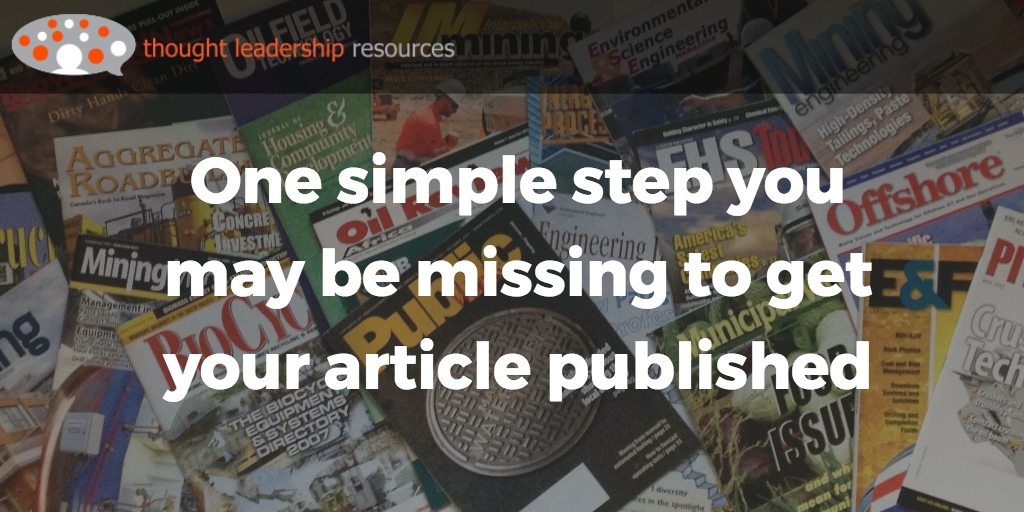Useful Links

Why do you need a website, when there are so many options for showcasing your ideas – LinkedIn, Facebook, Twitter, Instagram, SlideShare and others?
You need a website because it’s YOURS. Something you own, have full control over, and can turn into what you want. Those other platforms are owned by someone else.

For many people, “having a book” is one of the defining aspects of thought leadership. Even in an age of Twitter and Instagram, there’s something about being the author of a book that moves you to another level. This is because:

You may have been told, “If you want to be seen as a subject-matter expert, you need to get your ideas published!” So you tried. You set aside a weekend to pour your heart and soul into an article, sent it off to an editor … and never even heard back.
It’s frustrating and demoralizing, particularly when you look through publications and see articles like those you’d like to publish, or maybe articles written by colleagues or competitors. What are they doing right that you’re not?


“Forewarned is forearmed.” It’s an old saying, but it still rings true – if you know of the hazards that might lie ahead when you start a new venture, you can prepare yourself to meet those hazards.
In this post, I’m going to tell you about the hazards you might face in your efforts to get your ideas published. Maybe you’ve seen articles published in your clients’ niche media by your competitors, or as guest posts on influential blogs. Perhaps you wondered how they did it, when your efforts to get published seem to land with a dull thud each time.

For some business professionals, case studies are a go-to way to demonstrate their skills. And they can. I’ve argued that case studies can be a good way to enter a new market (Post #33). I’ve also warned that they can trap you in the kind of work you’re doing now, in Post #42.

